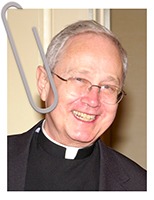“… in name only”
In political contexts, we hear “RINO” or Republican in name only. Of course, there is also “DINO” or Democrat in name only. In either case, political figures have used it to identify someone who wears one label but acts like a member of another party.
Jesus had his own way of saying it. “By their fruits, you will know them”. As I was thinking about the feast of Christ the King I wondered how “in name only” might apply to followers of Christ the King.
First, let’s look at the characteristics of Christ the King
Characteristics of Christ the King
Christ the King breaks the mold of earthly rulers in at least three ways.
1. He Identifies with everyone
Christ the King identifies with each one of us no matter how badly disfigured. He identifies with everyone who is hungry, thirsty, sick, lonely, a foreigner, in prison, and a stranger.
- He is in the needy, whether rich or poor.
- He is in the discouraged loved one who cannot find a job;.
- He is in our children, who need to be taught and encouraged.
- He is in the co-worker who just lost his wife.
- He is in the patient who was diagnosed with cancer.
- He is in the lost family member who needs instruction and to be drawn back to the Sacraments.
In short, He is in all our struggles and needs.
2. He serves all
To understand Christ as King we must remember what he did at his last meal. He washed the feet of disciples, something a lowly servant did for his master. He became their servant. Then he pointedly asked them. Do you understand what I have done? I, your Lord and Master (King) have washed your feet. I want you to wash one another’s feet in love. He even added, “Do this in memory of me!” lest we miss the point.
3. He deeply respects the freedom of all
Jesus is a King who respects our freedom to decide whether to have Him as our King and to accept the virtues of His kingdom—or not. Anyone who chooses not to live these characteristics creates a separate space outside this kingdom, space filled with isolation and fierce competition. He is a King who does not force His kingship and laws. Rather he offers his example to all and allows each of us to decide which space we choose.
Identifying followers of Christ the King
Identifying “followers of Christ the King” requires looking at who understand Christ’s Kingship and LIVES accordingly.
Some members of this kingdom stand out. We call them saints and blesseds. In our Vincentian heritage, Saints Vincent and Louise are among those whose lives clearly embody these characteristics. By their fruits we know them.
But Pope Francis constantly reminds us that we are called to be the “saints next door.” Do people see in our lives images of Christ the King, Together we manifest what the Eucharistic Preface of the feast of Christ the King describes as “an eternal and universal kingdom: a kingdom of truth and life, a kingdom of holiness and grace, a kingdom of justice, love, and peace.”
Do we, individually and collectively, look and act like people who serve one another because we recognize we are the body of Christ?
This post drew on a homily by Msgr. Charles Pope
Click below for an audio version of this Vincentian Mindwalk.


The Society of St Vincent de Paul’s weekly “Vincentian Meditation” for the Sunday when we celebrate Christ the King contains an excerpt from Father Ron Ramson’s “Praying with Frederic”:
“Frederic wrote to Father Pendola of Tuscany, who had just started a Conference of the
Society of St. Vincent de Paul, desiring that the young be introduced to the living reality of
Christ in the world: ‘You have amongst your children many who are rich, Reverend Father
— oh! What a salutary lesson, how strengthening for those soft young hearts, to show
them the poor, to show them Jesus Christ, not in pictures painted by great masters or on
altars resplendent with gold and light, but to show them Jesus Christ and His wounds in
the person of the poor!'” (Ramson, Praying with Frederic, p.96)
That was a fresh perspective for me – Christ the King in the person of the poor. It seems to tie in nicely with your reflection. Obviously, Vincentians (priests, nuns and lay persons) share a common perspective.